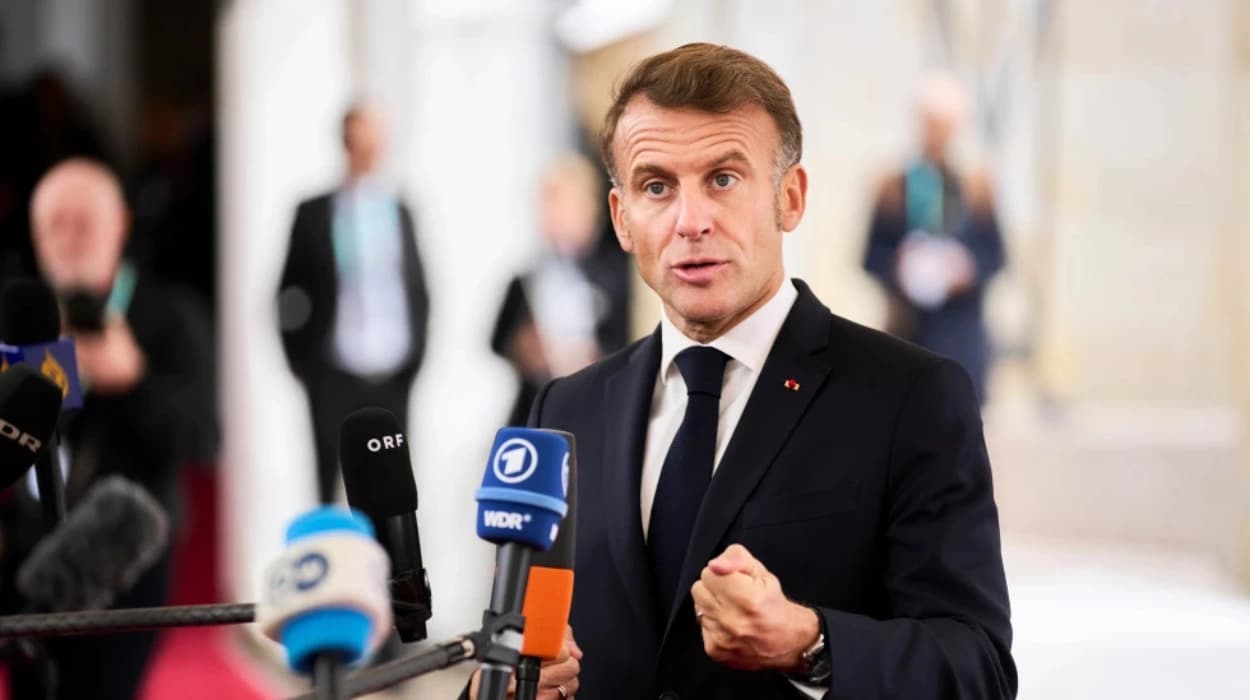A French prosecutor says the captain of an oil tanker tied
by Macron to Russia will face trial in February over the crew’s alleged refusal
to cooperate.
According to Macron, the tanker is part of Russia's "shadow fleet," which is a group of antiquated tankers with unclear ownership that are evading Western sanctions because of Moscow's war in Ukraine.
Two Chinese crew members, the captain and the chief mate, who had been held since Tuesday, were freed from police custody, according to Stéphane Kellenberger, the prosecutor for the western port city of Brest. There are no charges against the chief mate.
The Atlantic Maritime Prefect notified legal authorities Monday, prompting the opening of a preliminary investigation into the crew's "refusal to cooperate" and "failure to justify the nationality of the vessel," according to Kellenberger. He stated that the investigation revealed the captain could not be held directly accountable for the second infraction.
According to Kellenberger, when there seemed to be a difference between the ship's apparent and true nationalities, French Navy personnel stepped in and boarded it on Saturday off the Atlantic coast of France in accordance with international law.
According to him, a French Navy-led inquiry found that the ship was flying no flag while traveling from Russia to India with a "large oil shipment."
On February 23, the captain was called to Brest for a trial. He might be fined 150,000 euros ($176,000) and imprisoned for up to a year.
The ship was told to remain in a secure location, according to French military spokesman Col. Guillaume Vernet.
“You kill the business model by detaining even for days or weeks these vessels and forcing them to organize themselves differently,”
he
said.
Speaking at a European summit in Copenhagen, Denmark, Macron said “30 to 40%” of Russia’s war effort is “financed through the revenues of the shadow fleet.”
“It represents more than 30 billion euros. So it’s extremely important to increase the pressure on this shadow fleet, because it will clearly reduce the capacity to finance this war effort for Russia,”
he said.
Macron claimed that although the ship was flying a phony flag, it was "exactly the same" one that Estonia had detained earlier this year for the same flag problem.
The ship, then known as "Kiwala," was detained outside Tallinn Bay in April while en route to the Russian port of Ust-Luga, according to a report by Estonian state radio EE. The Estonian navy had "detained a sanctioned vessel with no flag state," according to a tweet at the time from Prime Minister Kristen Michal.
On September 20, the ship now called "Pushpa" or "Boracay" left the Russian oil facility in Primorsk, close to St. Petersburg, and headed off the Danish coast. According to the Marine Traffic tracking website, it has been off the shore of the western port of Saint-Nazaire, France, since Sunday.
The tanker, whose identity has changed multiple times, was flying the Benin flag and is included among the vessels that are the focus of EU sanctions against Russia.
Dmitry Peskov, the spokesperson for the Kremlin, responded that he had "no information" about the ship when questioned by reporters. Additionally, he claimed that other nations were engaging in "provocative actions" against Russia.
Used, outdated tankers that were frequently purchased by opaque organizations with addresses from nations that have not imposed sanctions on Russia make up the shadow fleet. They are responsible for assisting Russia's oil exporters in avoiding the price cap set by Ukraine's allies.
How this case may affect EU shipping sanctions enforcement?
The prosecution of the Boracay tanker captain for not
cooperating with authorities represents an increasingly firm position of EU
member states - particularly France - on enforcing sanctions against Russia's shadow
fleet, continuing a pattern of national authorities escalating investigations
and prosecutions for sanctions violations.
The Boracay tanker case presents a particular risk for shipping companies and crew that may be engaged in fraudulent evasive measures such as misrepresenting the nationality of the vessel, using flags of convenience, and not cooperating with authorities; unstable legal positions and serious consequences, including criminality, await those engaged in this conduct.
This prominent enforcement initiative may result in enhanced EU-wide cooperation to avoid vessel re-flagging and reliance on inadequate and fraudulent registries, and to foil ship-to-ship transfers, all of which have been the predominant means to evade sanctions.
